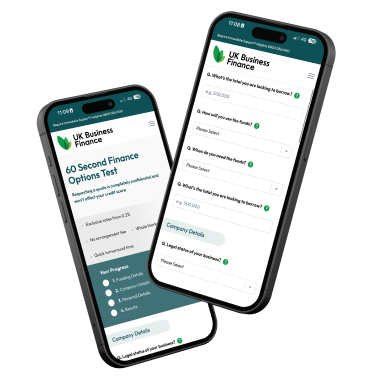Invoice discounting
Release value from unpaid invoices with confidential invoice discounting
Invoice discounting is a type of invoice finance that’s widely used by UK businesses. It allows you to raise finance against your sales ledger on an ongoing basis so you can release the funds tied up in unpaid customer invoices. It can provide a welcome cash flow injection that helps you invest in your business, plan ahead with confidence and ride out seasonal fluctuations.
Are you fed up of waiting 30, 60 or 90 days for your customers to pay their invoices? At UK Business Finance, we can help. We search the whole market to find you the best invoice discounting deals that meet the needs of your business. There are no fees to pay or exclusivity contracts to sign, and we can even complete the finance applications on your behalf.
What is invoice discounting?
In an invoice discounting agreement, you effectively sell your customer invoices to a lender who pays you a cash advance based on a percentage of the invoice’s value - usually around 80% to 90%. You typically receive the money within 48 hours to give you a welcome cash flow boost. Once your customer has paid the invoice, the finance provider hands you the remaining balance minus their fee.
Invoice discounting is very similar to factoring. The key difference is that with invoice discounting, your customer will not necessarily know that you’re using a third-party finance provider. That’s because you retain control of the collection of payments and communicate with your customers as normal. The downside is that you still have to chase invoices yourself. The upside is that you can protect the good relationships you have with your customers.
What are the benefits of invoice discounting?
Invoice discounting is a flexible and fast method of finance that gives you more control over your cash flow. Here are some of the benefits:
- Fast access to funding - Once the initial agreement is set up, you’ll receive 80-90% of the value of an invoice within 24-48 hours of issuing it to a customer.
- It’s confidential - You maintain control over the collection of invoice payments so your clients will never know you’re using an invoice discounting service.
- It speeds up the working capital cycle - Having almost immediate access to the value of your invoices allows you to pay your bills, buy stock, invest in your business and grow.
- Get protection from bad debts - You can choose a non-recourse invoice discount product. In this type of agreement, the finance provider accepts responsibility for any invoices which remain unpaid and you’ll still receive the full amount due, minus the provider’s fee.
- No risk to your assets - Invoice discounting is effectively a series of short-term loans that use your invoices as security. No security other than your invoices is required, so your business’s assets are safe.
Is my business eligible for invoice discounting?
Invoice discounting tends to be used by established businesses with reliable turnover and robust credit control processes. It could be a good fit if:
- Your invoices are business-to-business (B2B)
- You want to finance all your invoices, not just a few
- You have relatively few bad debts
- Your customers usually pay on time
- Customers have a minimum of 30 days in which to pay
- You meet the minimum level of turnover required by the lender
There are also some downsides to consider. Invoice discounting will reduce your profit margin, as a small percentage of every customer invoice is paid to the finance provider. It can also be difficult to access as a small business, and if a provider is willing to lend to you, it will typically be at a higher fee.
Get the best quotes from the whole market
As an independent commercial finance broker, we can help you find the most suitable invoice discounting product and provider at the best rates. Use our tool to request a quote or get in touch to discuss your business’s requirements with our team.
Further Reading
Top Finance Tips
We work across a wide range of sectors throughout the UK, providing specialist advice to each sector.

How to financially prepare for investor exits
Whether your business is at an early stage or it’s more established, the financial boost provided by external investment, such as from private equity firms, angel investors, and venture capitalists, is invaluable.

How to finance a MBO
If you’re considering conducting a management buyout (MBO), there are various means by which you can fund it. Financing commonly involves a level of personal funding by individual members of the management team combined with additional external borrowing, such as bank loans and asset financing.

What lenders look for in a business loan application
Knowing what lenders look for in a business loan application helps you present your business in the best light – an important consideration, as being rejected for a loan damages your company’s credit rating and makes it difficult to borrow in the future.

What is a commercial finance broker?
A commercial finance broker is a professional intermediary who helps business owners to source the best lenders and deals. They provide a vital service that eases access to funding and ensures businesses obtain the most appropriate finance for their needs.




